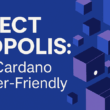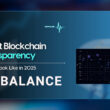We all have our identity. The definition of identity is “who you are”, and that is clearly explained in the Cambridge Dictionary.
Identity is not only the name of the person, but also the traits, the characteristics, and most importantly, the individual history, all of which differentiate humans from each other.
I am talking about personal identity, which is the most basic, the essential, since cultural, national, or religious identity can be associated with it.
Identity is the most precious thing we have, you could say that private property is, but without identity we cannot have property, or you could also say that life is the most important thing for a person, and I agree, but for people’s lives to have value, they must have an identity.
If our identity is erased, we lose our belonging.
Who Gives the Identity?
The identity is our own, we give ourselves identity, with our physical features and behavior.
The State does not give us our identity, but rather registers it and attests to who we are.
We also have virtual identities in social networks, which speak of ourselves, since there are many people who dare to say things on Twitter or Facebook, and who do not say them personally to other people in physical life, but show a trait, and with this information a professional psychologist could put together an identifying personality profile.
Therefore, the identity is our own, we build it over time, and managing it is our responsibility and right.
The Decentralized Digital Identity
Identity management is a powerful tool, to be able to prove ownership or access, or also responsibility and sanctions. Anonymity does not generate incentives for merit, since there are no punishments for the authors of bad actions, nor rewards for good ones. Therefore, a totally anonymous society is negative, while the privacy of individuals, managing their identity, is the best incentive.
The ownership of a wallet, in Cardano or any other blockchain, that is, owning the private keys, is not identity but property, since we own the cryptocurrencies that are registered there, but that does not prove who we are.
Digital Identity, or also known as Identity 2.0, is online identity verification, using blockchain technology centered on the user.
The digital identity contains a quantity of information of the individual, stored and available to be shared, but it is only considered decentralized when it is not managed by a central authority, and instead, it is the owner of the data who manages them exclusively, who possesses and exhibits them.
Therefore, identity validation should not be confused with the management and provision, since a third party, such as the State, the Universities, or the Institutions, can validate the data contained in an identity, but if it is decentralized, those certifiers cannot manage the data, nor dispose of it, because they are not their own.
Large-scale data breaches in recent times have severely undermined customer confidence in the ability of companies to keep personal information secure. Cambridge Analytica and Equifax have become synonymous with identity theft and, by extension, distrust of corporate entities, which until now were free to manage and handle the sensitive data of millions of people.
Another problem arises with identity theft for impersonation, that is, the use of an individual’s personal identification, by another person, without the owner’s permission. This spoofing is often used to commit fraud, usually resulting in financial damage to the spoofed individual.
In an article that I published months ago, I dealt with the subject in greater depth; I leave it at the end (1).
Now I am going to explain the identity developments that are currently being built on Cardano.
Identity Projects in Cardano
Catalyst is a project incubator, since in its 8 completed Funds, it has financed more than 900 proposals.
Many of the proposals presented are related to identity, and some were chosen. It is not my idea to develop them all, it would be a very extensive article, but I will explain the main ones. On the Lido Nation site, a great educational platform, you can see the 271 proposals in Catalyst, which are somehow related to identity. You can see it on Cardano Projects and type the word identity in the search engine.
Atala PRISM is a Self-Sovereign Identity (SSI) platform and service suite for verifiable data and digital identity. Built on Cardano, it offers core infrastructure for issuing DIds (Decentralized Identifiers) and verifiable credentials, alongside tools and frameworks to help expand your ecosystem.
Users own their identity, they have full control over how their personal data is used and accessed. Data is shared with other people or organizations, through secure and private peer-to-peer communication channels. Atala PRISM is designed for businesses and governments.
Businesses can quickly onboard new customers, reduce compliance risks and costs, and deliver seamless user experiences. Governments can issue digital identities, and allow instant access to public and private services.
The mobile app offers end users a customizable design to receive, store and share digital credentials. With the Management Console, digital credentials are issued or verified with the easy-to-use decentralized management platform.
DIds are managed with a web browser extension. SDKs and APIs streamline processes, integrating digital identity and issuance functionality, verifying credentials into applications and workflow.
It has an enrollment tool, with biometric data capture, as part of the onboarding process through a lightweight mobile app. The ecosystem can be expanded by using a low-cost smart card to store and share digital credentials.
You have two use cases in the works:
- Input Output partnered with Ethiopia’s Ministry of Education to implement a national student and teacher ID and attainment recording system based on blockchain. Atala PRISM’s identity solution enables authorities to create tamper-proof education credentials for 3,500 schools, 5 million students, and 750,000 teachers
- DISH Network Corporation has taken the first step towards the launch of a decentralized identification and loyalty system built on blockchain technology designed and developed by InputOutput. This first step enables blockchain capabilities in DISH’s infrastructure through Atala PRISM’s identity services and Cardano’s native asset features
The Atala PRISM team brings together the most experienced self-sustaining identity professionals in the industry. With over 25 years of collective experience, the team has members both inside and outside of IOHK.
Website: https://atalaprism.io
IAMX is a legally binding global identity and authentication application owned and controlled by the owner.
With IAMX, the cardholder can move around the web seamlessly and securely, just like they move around the real world. IAMX is a next generation passport.
The business model is based on the massive incorporation of holders through a telecommunications partner that will issue credentials, verifiable in the wallet of each holder, through hardware to provide identity.
They plan DId storage on various blockchains, starting with Cardano.
The technology will enable decentralized and asynchronous workflows and smart contracts in any business case.
IAMX will have a token designed to reward early investors by multiplying their allocation by 12x, based on the Fibonacci replication algorithm. The utility of the IAMX token is to create and verify identities.
The team has three co-founders, Tim Heidfeld, Tim Brückmann and Garry Ledge, each with more than 20 years’ business experience.
The team reports a history of working with 49 international telecom and mass media partners including: A1, Asia Cell, Cell C, Deutsche Telekom, Djibouti Telecom, Etisalat, Freenet, Liwest, Medion, Mobilcom-Debitel, Mobilezone, Orange , Smart, Spark, Sunrise, Tele2, Telefonica, Three, T-Mobile, upc, Vika, Vip, Vodafone, Vodafone Egypt, ZAIN, Zamtel and others.
Note: In a tweet, Temujinx, a member of the community, makes a criticism about two advisors of this project. My duty as a writer is to quote information when I consider it to have some support, so that my readers can do their own research. On February 9, 2022, I tweeted about MELD’s non-compliance with its Roadmap at that time. DYOR.
Website: https://iamx.id
Blockademia is a system that wants to deal with the problem of certificate forgery. Whether it’s a forged certificate, credential or diploma, it often causes significant financial loss, reputational issues and even danger to human life.
Blockademia is a new Proof of Truth document verification system powered by the Cardano blockchain system.
The Blockademia system allows publishers to issue documents such as diplomas, certificates, certificates, etc. in an original, fast and simple way, and for end users to check them through the Blockademia web or mobile application.
When a certificate is issued on the blockchain, it cannot be edited or deleted, it is stored there permanently.
Any type of credential can be issued through Blockademia with a few simple steps, with a QR code for a college diploma, personal ID, or judo black belt certificate.
Blockademia will create its own native token on top of the Cardano network. This token will be used for payments and interaction with the Blockademia system.
Website: https://blockademia.com/en
IdentityToken is the idea of owning the record of identity and carrying it personally, eliminating the need for custodians and intermediaries to manage it, without passwords and centralized databases for authentication.
Using the Cardano Blockchain and its Native Asset feature, this IdentityToken proof of concept is a means of authentication.
Once minted, it will be possible to prove identity to the services that support the protocol. A demo chat service will be developed as an example of how it could be used. But IdentityToken could be used for many more use cases.
Potential Applications: NFT ownership tracking, Cardano social media profile, linking third-party services (Discord, Twitter) to your Cardano wallet, and more.
The project is in its initial phase. The team will provide a technical white paper in the future, detailing the rules of the IdentityToken protocol and how to use it. In the meantime, you can explore on GitHub. The team believes that it could complement other authentication protocols such as the OAuth2.
Website: https://identity.adaph.io
…
(1) The Next Evolution in Blockchain: Decentralized Identity










